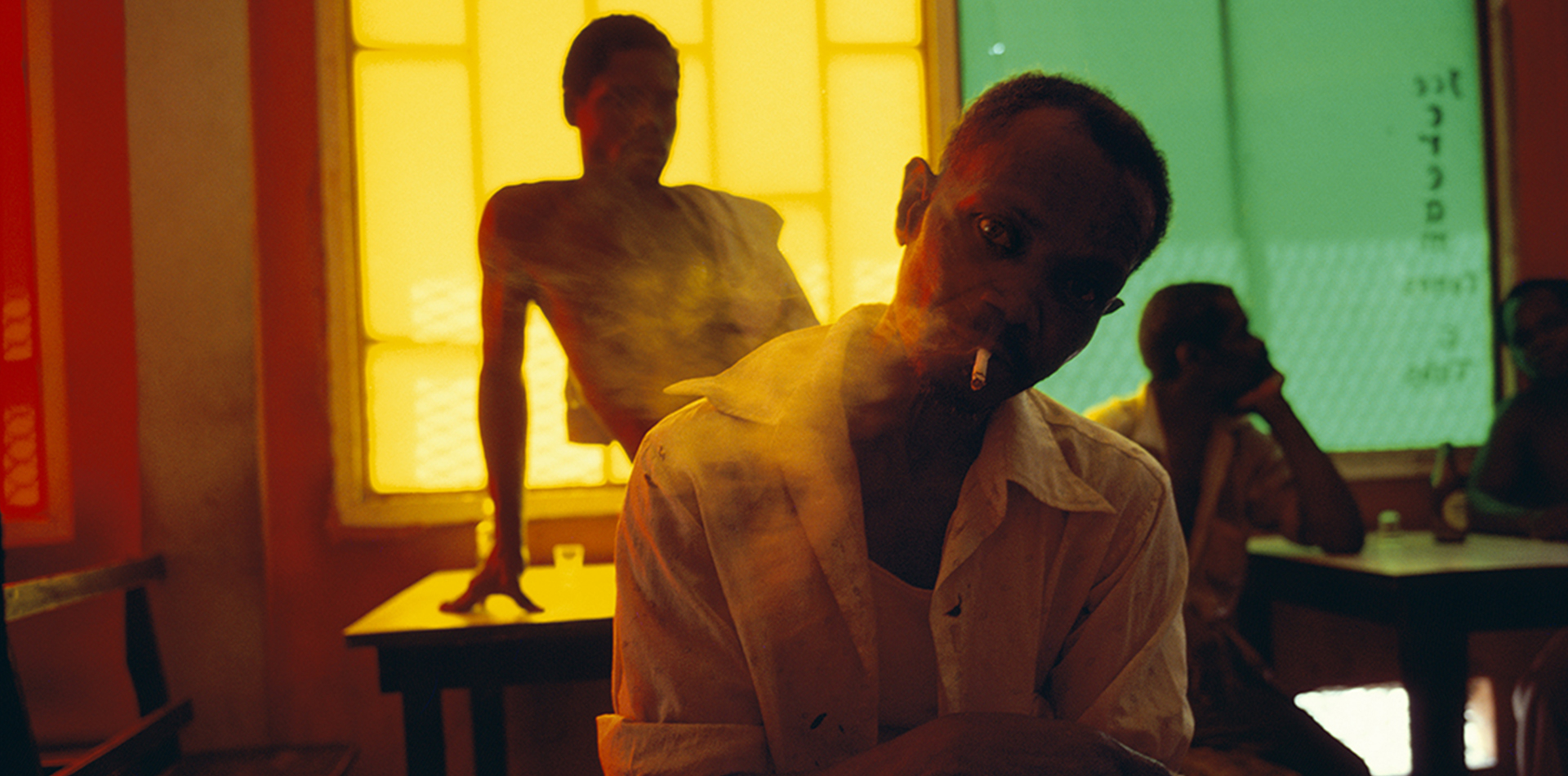
Introduction to The Suffering of Light [O sofrimento da luz]
Colors are the deeds and suffering of light.
Johann Wolfgang von Goethe
I only know how to approach a place by walking. For what does a street photographer do but walk and watch and wait and talk, and then watch and wait some more, trying to remain confident that the unexpected, the unknown, or the the secret heart of the known awaits just around the corner.
Alex Webb, from Under A Grudging Sun [Sob um sol relutante]
In 1975, I reached a kind of dead end in my photography. I had been photographing in black and white, then my chosen medium, taking pictures of the American social landscape in New England and around New York — desolate parking lots inhabited by elusive human figures, lost-looking children strapped in car seats, and dogs slouching by on the street. The photographs were a little alienated, sometimes ironic, occasionally amusing, perhaps a bit surreal, and emotionally detached. Somehow I sensed that the work wasn’t taking me anywhere new. I seemed to be exploring territory that other photographers – such as Lee Friedlander and Charles Harbutt – had already discovered. I happened to pick up Graham Greene’s novel The Comedians a work set in the turbulent world of Papa Doc’s Haiti, and read about a world that fascinated and scared me. Within months, I was on a plane to Port-au-Prince.
That first three-week trip to Haiti transformed me — both as a photographer and as a human being. I photographed a kind of world I had never experienced before, a world of emotional vibrancy and intensity: raw, disjointed, often tragic. I began to explore other places — in the Caribbean, along the U.S.-Mexico border — places, like Haiti, where life seemed to be lived on the stoop and in the street. Three years after my first trip to Haiti, I realized there was another emotional note that had to be reckoned with: the intense, vibrant color of these worlds. Searing light and intense color seemed somehow embedded in the cultures that I had begun working in, so utterly different than the gray-brown reticence of my New England background. Since then, I have worked predominantly in color.
Not a typical documentary photographer or photojournalist, I've worked essentially as a street photographer, exploring the world with the camera, allowing the rhythm and the life of the street to guide and inform the work. For me, everything comes, first and foremost, from the street. Whatever insights — sociopolitical, cultural, or aesthetic —I may have into the societies I have photographed over the years come not from preconception, but from the process of wandering the street. At times, I feel the street can sometimes be a kind of bellwether, hinting at sociopolitical changes to come.
Over the years, my way of seeing in color, which first emerged in the tropics, has expanded into various projects, leading me not just to other parts of Latin America and to Africa, but also to Florida and to Istanbul. I have been consistently drawn to places of cultural and often political uncertainty — borders, islands, edges of societies — where cultures merge, sometimes clashing, sometimes fusing.
Alex Webb
Alex Webb was born in São Francisco, the USA, in 1952. He became interested in photography while a graduate student. In 1972, he attended the Apeiron Photography Workshop (In Millerton, New York) where he met Bruce Davidson and Charles Harbutt (photographers who were at the time working for the Magnum agency). He studied History and Literature at Harvard University while also studying photography at the Carpenter Center for the Visual Arts (a part of the same university). He started working as a photojournalist in 1974, and just two years later, he also joined the Magnum agency.
Webb is one of the most extraordinary street photographers of our times. His photography is distinctive for its strong use of colour, play of light and shadow, and for the complexity of his images that walk the line between order and chaos: as if the addition of just one more element - any element - might break the elegance and intelligibility of his photography.